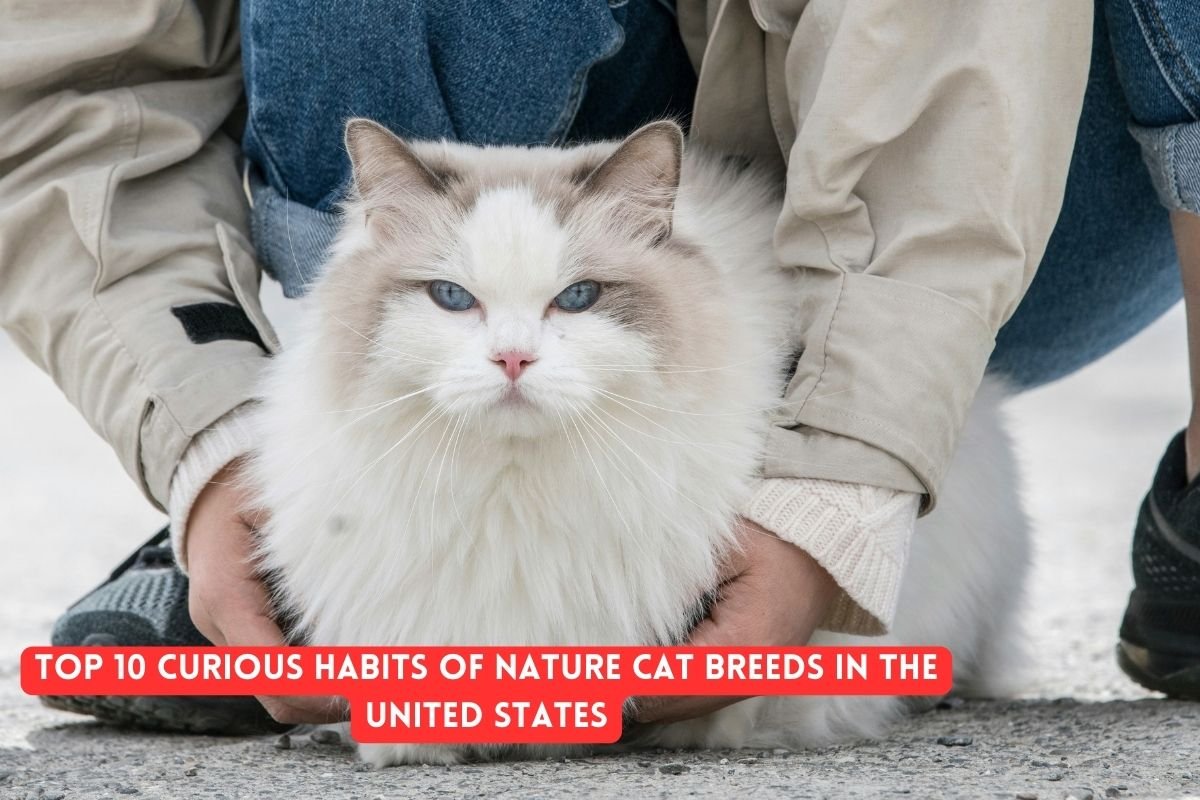Nature cat breeds, also known as outdoor or natural cat breeds, exhibit unique behaviors that distinguish them from their indoor counterparts. These felines have evolved to thrive in outdoor environments, displaying fascinating habits that reflect their innate instincts. In this article, we explore the top 10 curious habits of nature cat breeds in the United States.
Hunting Instincts
Nature cat breeds possess strong hunting instincts, often honed through generations of outdoor living. They exhibit exceptional agility, stealth, and cunning when stalking prey such as rodents, birds, and insects. These cats rely on their keen senses and lightning-fast reflexes to capture their quarry, showcasing their natural prowess as skilled hunters.
Territory Marking
Outdoor cats are territorial creatures, marking their domain through various means such as scent marking and scratching. They use scent glands located on their face, paws, and tail to leave scent trails, effectively communicating ownership and boundaries to other cats in the area. Additionally, they scratch trees, fences, and other objects to visually mark their territory, asserting their presence in the environment.
Sunbathing
One of the most beloved habits of nature cat breeds is their love for sunbathing. These cats bask in the warmth of the sun, stretching out in sunny spots to soak up the rays. Sunbathing not only helps regulate their body temperature but also provides essential vitamin D, promoting overall health and well-being.
Climbing and Exploring
Nature cat breeds are natural climbers and explorers, effortlessly navigating their outdoor surroundings with grace and agility. They scale trees, leap across obstacles, and venture into unfamiliar territory with fearless curiosity. Their adventurous spirit and boundless energy drive them to explore every nook and cranny of their outdoor domain.
Vocalization
Outdoor cats are vocal creatures, using a variety of vocalizations to communicate with their human companions and fellow felines. From melodic meows to assertive yowls, these cats express their needs, desires, and emotions through vocal cues. Their repertoire of sounds can range from affectionate purring to territorial growls, providing insights into their complex inner world.
Nighttime Prowling
Nature cat breeds are nocturnal by nature, exhibiting heightened activity levels during the twilight hours. Under the cover of darkness, they embark on nighttime prowling expeditions, prowling their territory in search of prey or engaging in playful antics under the moonlight. Their keen night vision and acute senses allow them to navigate their environment with ease, making the most of the nocturnal hours.
Independent Spirit
Outdoor cats are renowned for their independent spirit, preferring to roam freely and follow their own agenda. Unlike their indoor counterparts, they thrive on autonomy and self-reliance, embracing the freedom to explore and experience the world on their terms. This independent streak is a defining characteristic of nature cat breeds, reflecting their wild ancestry and innate survival instincts.
Socializing with Other Cats
While nature cat breeds value their independence, they also enjoy socializing with other cats in their community. They form loose alliances and hierarchies, engaging in social interactions such as grooming, playing, and territorial disputes. These social bonds provide companionship and mutual support, enriching their outdoor lifestyle with shared experiences and camaraderie.
Natural Grooming Behaviors
Nature cat breeds exhibit meticulous grooming behaviors, maintaining their sleek coats and sharp claws through regular grooming sessions. They use their rough tongues to lick their fur clean, removing dirt, debris, and parasites with precision. Additionally, they engage in self-sharpening activities such as scratching, ensuring that their claws remain sharp and functional for hunting and climbing.
Adaptable Survival Skills
Perhaps the most remarkable habit of nature cat breeds is their adaptable survival skills, which enable them to thrive in a variety of outdoor environments. From urban alleyways to rural farmlands, these resilient felines can adapt to diverse landscapes and climates, utilizing their innate instincts and resourcefulness to overcome challenges and secure their place in the natural world.
In conclusion, nature cat breeds in the United States exhibit a fascinating array of curious habits that highlight their unique adaptation to outdoor living. From hunting instincts to independent spirit, these cats embody the essence of wildness and freedom, enriching our lives with their presence and enriching our understanding of the natural world.
FAQs
Do nature cat breeds make good indoor pets?
While some nature cat breeds can adapt to indoor living, they generally thrive best in outdoor environments where they can exercise their natural behaviors.
How can I help ensure the safety of my outdoor cat?
Providing proper shelter, regular veterinary care, and keeping them up-to-date on vaccinations can help keep your outdoor cat safe and healthy.
Are nature cat breeds more prone to certain health issues?
Outdoor cats may face increased risks of injury, parasites, and infectious diseases compared to indoor cats. Regular veterinary check-ups are essential for maintaining their well-being.
What should I feed my nature cat breed to support its outdoor lifestyle?
A balanced diet rich in protein and essential nutrients is crucial for supporting the energy needs and overall health of outdoor cats. Consult with your veterinarian for personalized dietary recommendations.
Is it possible to train a nature cat breed to become more accustomed to indoor living?
With patience, consistency, and positive reinforcement, it is possible to train some nature cat breeds to adapt to indoor living, although they may retain their inherent desire for outdoor exploration.
